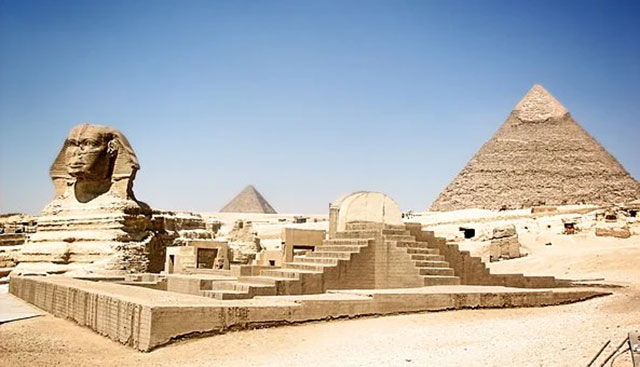
Good morning my “Walking with Jesus” friends, on this the first day of March, ’22.
I wonder if you spend much time thinking about how you would like your earthly journey to draw to a close. Where I live, I’m surrounded by retirees, mostly people in their 70’s and 80’s. For many of them this season of life seems to be about finding ways to get the most out of the last years, or months of their lives. Most of these retirees live far away from their descendants and the places where they grew up or lived most of their adult life. While few speak of it, we all know the harsh truth… the end of our earthly road is now closer than it’s ever been, in fact it’s in sight for many of our neighbors and friends. That reality tends to put things into perspective.

In our journey with Mr. Moses, we’ve come to that time for him. The ‘farewell’ messages of Deuteronomy are drawing to a close. He has challenged this younger generation of Hebrews to remember the past, and he has instructed them about important mistakes made by their parents and grandparents, urging them to make different choices when it comes their turn. Moses has repeatedly instructed this more than 1 million Hebrews, camped with him on the east side of the Jordan river, to prepare for entering, claiming and settling the land God promised their ancestors 5 centuries before. Moses has warned them of the challenges ahead, but also reminded them of the greatness of God and His readiness to help them realize what God had promised their parents… the land of Canaan. The people were poised and anxious to get going, but also respectful of old Moses and his farewell process.
As the speeches ended, there was one more major event everyone anticipated. In our day we call it a ‘succession plan’. The process of selecting the right leader to succeed the leader who will soon be ready to step aside, yielding the leadership authority they’ve held to the next leader. But as we all know that process of leadership transition is delicate and can be dangerous. Almost always in politics that event is traumatic because the new leader is dramatically different from the previous leader, and as administrations change so change priorities, philosophy of leadership, objective and even core values change. It can be cataclysmic for a nation and the people when Presidents or Monarchs or Prime Ministers change.
For Moses and the Hebrews, this leadership change would be almost beyond description in significance. Moses had been the only leader the Hebrews had known! Prior to Moses was more than 300 years of Egyptian slavery. Prior to that, the descendants of Abraham, Isaac, Jacob and his sons were refugees, seeking survival from a famine back home, and then staying in the ‘best of the land’ of Egypt long after the famine ended, and they could have, and should have, returned home to Canaan.
Moses was unique. There was none other like him. Remember, he should not have survived his infancy, for the Pharaoh back in those days had issued a decree that all newborn Hebrew baby boys should be thrown into the nearest river to drown. (Ex. 1:22) But Moses’ parents simply could not kill their God given son. So, they set him afloat in a basket and he was taken up out of the river by the Pharaoh’s daughter and raised in the palace! (Ex. 2:1-10) Prince Moses killed an Egyptian slave master who was beating a Hebrew slave, and that ended Moses’ years of royalty, as he fled for his life. (Ex. 2:11-15) As a simple shepherd, watching the sheep of his father-in-law, Moses had a life changing encounter with Almighty God at a burning bush on the hillside of Mount Horeb, also known as Mount Sinai. That encounter, recorded in Exodus 3, changed Moses’ life, drew Moses into a powerful and growing relationship with God, and commissioned Moses to return to Egypt to be God’s spokesman to the Pharaoh and the Hebrew slaves... and you know the rest of the story, right?

Now, with the instructional, farewell messages complete, the time had come for the succession plan to be accomplished. Moses recorded for us the details in Deuteronomy 31. It’s an historic event and I invite us to be eyewitnesses: “Then Moses went out and spoke these words to all Israel: ‘I am now 120 years old, and I am no longer able to lead you. The LORD has said to me, ‘You shall not cross the Jordan river.’ The LORD your God Himself will cross over ahead of you… Joshua also will cross over ahead of you, as the LORD said… Be strong and courageous. Do not be afraid or terrified because of the people there, for the LORD your God goes with you; He will never leave you nor forsake you.” (Deut. 31:1-6)
I have a question for you my friends: What was Moses’ primary responsibility as the leader of these Hebrews for the past more than 40 years? What had God commissioned Moses to do and how do we evaluate the success or failure of his leadership legacy? Seems to me Moses had two primary roles:
First… Seek to know God and God’s plans for the people at all times and instruct the people in how-to live-in relationship with God and accomplish God’s plan for them.
The degree to which Moses succeeded as the leader of this people was entirely dependent on the success Moses had in knowing God personally, and discerning God’s plan for the people. and then helping the people know God and understand God’s plan for them.
Second… Moses was then responsible to lead the people in accomplishing the plan God had for them.
Moses’ success here depended on his ability to cast God’s vision for the people with clarity, help them overcome their natural fear, help them learn to trust God, and help them take the courageous steps necessary in following God into accomplishment of God’s plan for them.
I can’t think of any human being, in any generation, who has ever had a greater leadership challenge, can you? And now it’s time to pass the leadership mantle to Joshua, his young aide. God Himself had selected Joshua to succeed Moses, just as God had selected Moses to be the first leader of this Hebrew nation. Joshua’s mission would be no different… discern God’s plan, communicate that plan to the people, and lead the people in following God in accomplishment of God’s plan. Moses had received a singular promise which had sustained him in leadership for over 40 years. Do you remember? God had promised Moses at that burning bush: “I will be with you…” (Exodus 3:12) Now here, more than 40 years later, Moses assured Joshua and the next generation of Hebrews of this same God promise: “…the LORD your God goes before you; He will never leave you nor forsake you.”
Moses’ great challenge was to confront the Egyptian Pharaoh and his leaders, his overwhelming military might, his slave masters, and his sorcerers. Joshua’s great challenge would be confronting the leaders and armies of 7 different nations of people who lived on the other side of the Jordan river in Canaan and lead the Hebrew warriors in conquering all of Canaan, one small portion at a time! But for Joshua, he had one great advantage Moses did not have when he had started in leadership. Joshua had watched and been a close part of the past 40 years of miraculous experiences with Moses and with God! Those memories, and the written record of all God had done, would be the source of great confidence and courage going forward for Joshua!

The record says: “So Moses wrote down this law and gave it to the priests who carried the ark of the Covenant. Moses commanded them, ‘At the end of every seven years, during the Feast of the Tabernacles, when all Israel comes to appear before God at the place He will choose, you shall read this law before them all in their hearing. Assemble the men, women and children and even the aliens living among you, so they can listen and learn to fear the LORD your God…” (Deut. 31:9-13) Do you see the priority placed on making sure everyone knew the record of all God’s truth, which He had given Moses to give the people, AND the whole story of what these past 40+ years had been for them, the record of God’s faithfulness, provision, protection and His blessing.
As we begin a new month today, may I ask… how often do you take time to slow down and take a careful look at your life to see if any realignment is needed with God, and God’s truth, and God’s plans for your life? And if you are a leader, in any leadership role, even your family… do you have a succession plan for how God will transition leadership from you to the next leader who will follow you?
Those are really important questions aren’t they, my friends? Have you spent much time discussing all this with God? How about right now? Wouldn’t it be wise for you to know God’s leadership succession plan for your life? And here’s a powerful song I urge you to sing as you seek God’s succession plan for you:
Bible images provided with attribution to www.LumoProject.com.
Have a comment or question about today’s chapter? I’m ready to hear from you, contact me here.

Pastor Doug Anderson 262.441.8785
“Let us run with perseverance the race marked out for us, with our eyes fixed on Jesus…” (Heb. 12:1,2)
Archived back issues of “Walking with Jesus” and other resources are available by clicking here to open our ‘home page’ (or go to HOME at upper right of this page).
Share with friends. Subscribe below for daily “Walking with Jesus”.
Facebook
Twitter
LinkedIn
Pinterest
Email
WhatsApp


